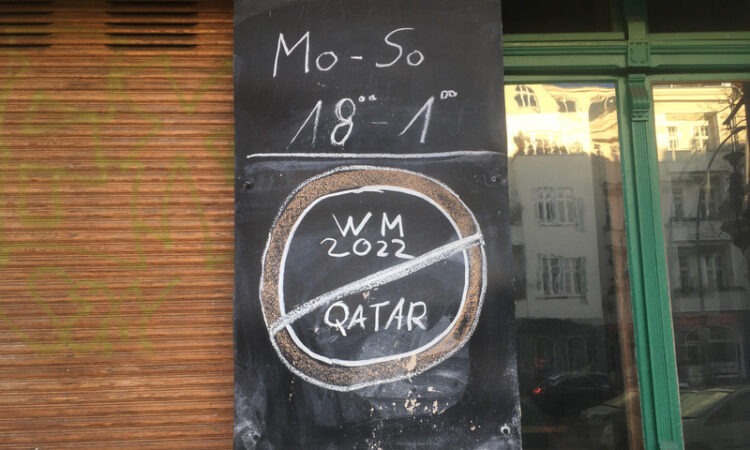
European banks and investors have invested heavily in Qatari sovereign bonds and construction and hospitality companies active in Qatar, paying scant attention to the well-documented human rights violations being perpetrated in those sectors.
Fair Finance International’s new report shows that almost half (47 percent) of the financing to construction and hospitality companies active in Qatar is provided by European banks, pension funds and insurance companies.
In the lead-up to the World Cup, which Qatar will host this month, both these sectors have enjoyed a massive boom in the country.
However both sectors have been rife with human-rights violations, with documented abhorrent treatment of migrant workers without whom this World Cup wouldn’t be possible.
If ever there was an example as to why the financial sector needs to be compelled to do its due diligence to ensure investments are not complicit in human rights abuses, this is it.
The report shows that financial institutions provided loans and underwritings with a total value of $85.7bn [€83bn], to the main construction and hospitality companies since early 2019 with 47 percent of the total identified financing being provided by European financial institutions.
Deutsche Bank and Allianz
Deutsche Bank alone accounts for 42 percent of the European financing, with $15.7bn. Qatar holds a 6.1-percent stake in Deutsche Bank through its former prime minister Sheikh Hamad bin Jassim al-Thani.
The biggest European investor in construction and hotel companies active in Qatar and in Qatari sovereign bonds is Allianz with over $4bn.
Although financial institutions usually do not commit human rights violations themselves, they facilitate business activities, by providing financial services, that may cause human rights or environmental violations.
This is why the UN Guiding Principles on Business and Human Rights and the OECD Guidelines for Multinational Enterprises make clear that human rights due diligence obligations also apply to the financial sector.
The European Union should follow these precedents and legislate for financial institutions to be treated just the same as other businesses and thus be obliged to set up the necessary processes to identify and assess human rights and environmental risks, and consequently take appropriate action to prevent or mitigate adverse impacts.
The current proposal from the European Commission on Corporate Due Diligence lets the financial sector off the hook, but of course without their investment these companies could not operate.
Yet none of the financial institutions contacted in our report were able to share evidence that they use their influence to enable access to remedy for victims of harm in Qatar as part of their engagement with the selected companies.
Victims such as Bipana from Nepal, whose husband Tul Bahadur Gharti died in Qatar in 2020 at the age of 34 following a day of working outdoors on a construction site when the temperature in Doha reached 39°C.
Where money goes, how it is spent has real consequences on human lives.
Where the current EU proposal is sorely lacking the European Parliament and the Council can and must improve on it and fully integrate financial institutions into the legislation to meet the commission’s own objective “to foster sustainable and responsible corporate behaviour and to anchor human rights and environmental considerations in companies’ operations and corporate governance”, otherwise the tragic story of Bipana and the many more like hers are doomed to be repeated.





